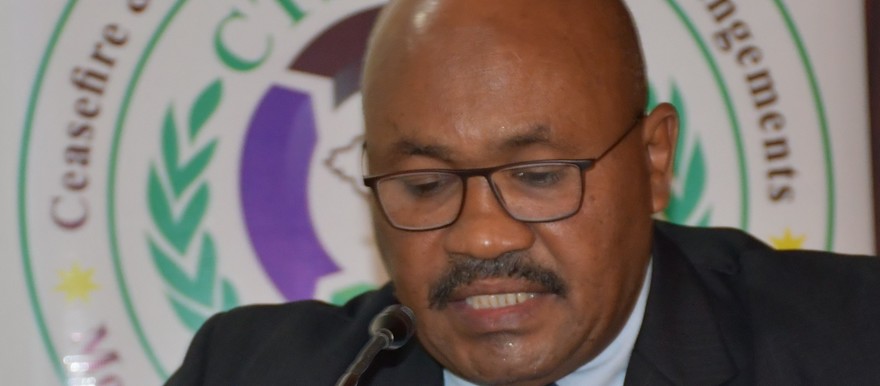South Sudan ceasefire monitors say continued clashes triggered by defections and deteriorating conditions at the cantonment sites pose a risk to the implementation of the peace agreement.
Major General Dafaalla Hamid Mohamed Dafaalla, the acting chairperson of the Ceasefire and Transitional Security Arrangements Monitoring Mechanism in South Sudan, CTSAMVM said although the ceasefire is largely holding, tensions and isolated cases are worrying.
"Tension and isolated outbreaks of violence continue in the areas of Moroto Training Centre and Liang cantonment site. One of the triggers of the violence has been changes of allegiance by senior military officers and their affiliated forces from SPLM/A-IO," Hamid said. "CTSAMVM remains concerned that if these situations continue there are risks to the implementation of the R-ARCSS with particular regard to the ceasefire."
He called on the parties involved to take the necessary steps and adhere to the ceasefire and the protection of civilians.
Hamid further noted that conditions in the cantonment sites have been deteriorating and needed urgent action.
"Regrettably conditions in cantonment sites have not improved, it is of concern that conditions in Training Centres have deteriorated and as a result, many trainees have left the centers. There is still no deployment plan for the NUF. These are major implementation weaknesses which need to be addressed by TGoNU and the NTC," he said.
The ceasefire body also pointed out that there has been a significant reduction in the occupation of civilian buildings by the government army in Eastern Equatoria, but condemned a recent incident in Lainya where civilians were killed, a woman raped and vulnerable people assaulted.
CTSAMVM also revealed that plans are underway to induct and train SSOMA national monitors although the date and location for training have yet to be confirmed.




